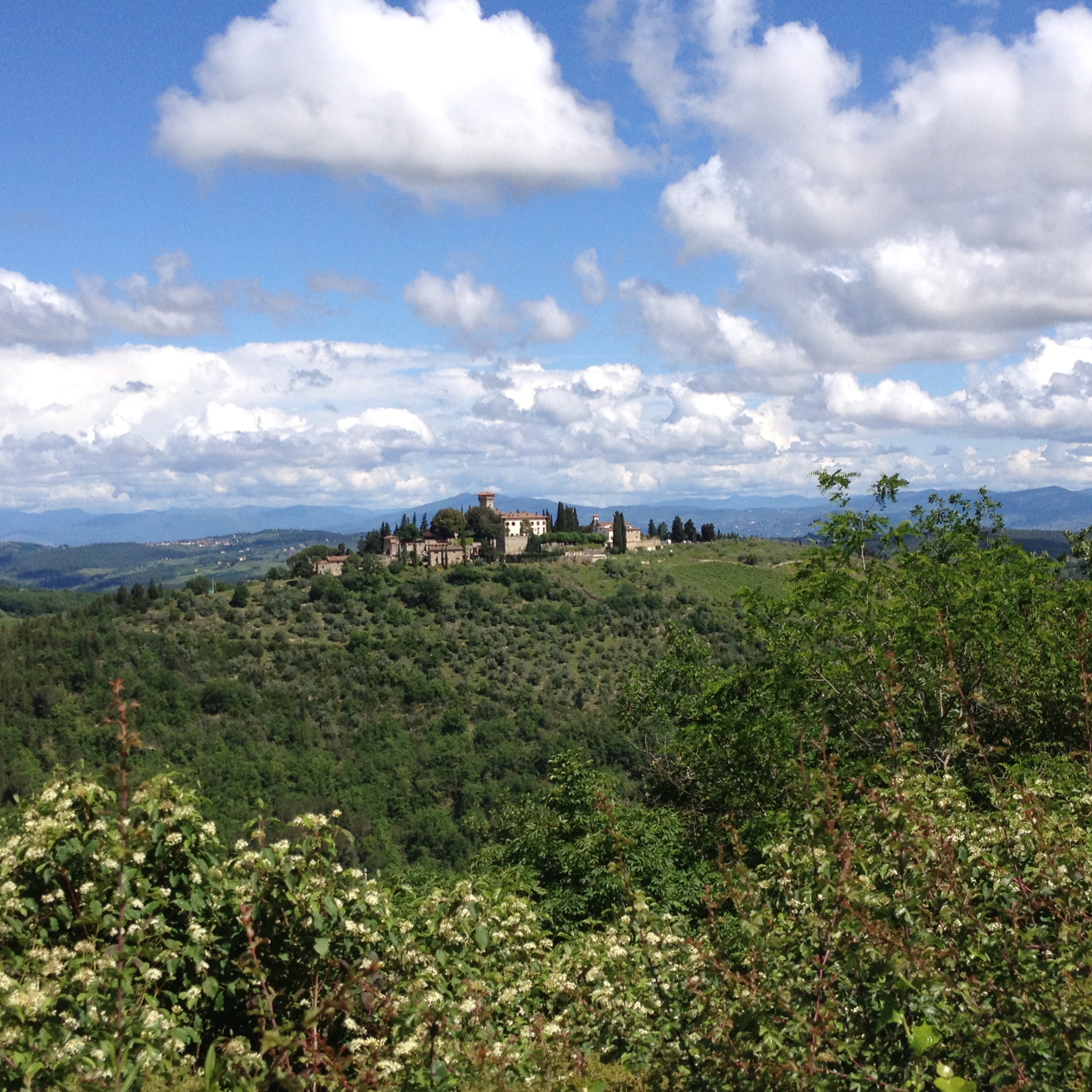Dieser Beitrag enthält Werbung – advertising.

no English version of the books
Captain Giulio Bardi, head of the San Pietro carabinieri station, was sitting at his trusted barber’s for his morning shave when a loud metallic clang echoed through the alleyways of the small town.
Giovanni, the barber, who had just scraped Bardi’s cheeks with the solemn seriousness of a sculptor, wiped the blade of the razor on his white apron and gave his customer a conspiratorial look. Then he hurried to the shop door with sweeping strides to see what had happened. …
“The noise is coming from the piazza, Capitano,” he shouted seconds later from the alley into his parlour. …
Sighing, Bari took one of the towels from the pile under the vanity mirror and wiped the shaving soap from his face. …
“The shave will have to wait,” Bardi explained, handing the barber the towel he was still holding.
“And the coffee too,” he called to the barista at Bar Puccini, which was next to Giovanni’s salon. Bardi usually had a quick breakfast there at the bar, consisting of a strong espresso and a cornetto filled with apricot jam.
from: Perdita – Sünden der Vergangenheit
(own translation)
The Good Life in Tuscany
Capitano Giulio Bardi actually has a very quiet life. He is the master of the carabinieri station in an idyllic market town in Tuscany, which tourists have already discovered, but which is not flooded with tourists every day (or so it seems). His guard consists of himself and a young carabinieri who has just completed his training and goes about his work with zeal – sometimes a little too much zeal.
Bardi has a small flat above his station with a roof garden that offers him a view over the city and the beautiful surroundings. He loves to sit here at lunchtime and in the evening, eating and drinking a glass of wine. Incidentally, Bardi cooks himself – and not as badly as it seems. He is in his early fifties and … alone … in search of …
His marriage broke up while he was still working in Rome and pursuing his career: a life as a workaholic, increasingly characterised by the disappointments of daily police work. He failed in an assassination attempt on a politician he was supposed to protect with his team – at least that’s how he sees it. There was a dead body at the time, a little boy, whose death will not let Bardi rest. He got stuck on this case. His wife eventually left him with their young daughter and now lives in California. Bardi had himself transferred to the deepest provinces to lick his wounds and became … happy. Well – he is, of course, still obsessed with bringing the man who ordered the assassination to justice.
He has little contact with his wife and daughter, until by chance … His daughter, now almost grown up, decides to live with her father in Tuscany for a year. They both get along quite well, even if his daughter does indulge in her teenage behaviour. Naturally, she becomes innocently involved in a crime.
I was quite taken with the series, which for a change is not set in the south of France, but has chosen a beautiful Italian landscape. It brought back memories of a holiday in Tuscany a few years ago … The delicacies that Bardi likes to serve up … The climate …
But back to the topic: murder!
Murder is also committed in Tuscany. The mafia, or one of its offshoots, is also active in Tuscany, albeit in the north of Italy. (Bardi comes from Sicily and knows his way around.) There are also local and regional politicians in Tuscany who pursue their own goals and are primarily out to increase their wealth and influence.
In short: it’s the same in Tuscany as everywhere else in Italy … (I know, we’re talking in clichés!).
Bardi operates alone and independently, although his past and professional experience would make him perfectly capable of leading an investigation with a large team himself. Florence is close by and the colleagues from the criminal investigation department in Florence are always on the spot quite quickly. That’s the official policy.
Bardi is popular in San Pietro and enjoys living in his microcosm with his guard, his assistant, his barber, his fruit and vegetable vendor and all the other residents who hang around the centre – not forgetting the interesting women. His adversary is the mayor, who pursues his own interests and would prefer to use Bardi’s service, if only Bardi would play along.
Bardi’s relationship with his colleagues in the criminal investigation department in Florence is sometimes good and sometimes bad. They don’t like it when he messes things up for them – he doesn’t like it when he is ignored and his tips are ignored. In the end, they come to an arrangement.
… and the memory of the assassination attempt keeps popping up in Bardi’s head, of the dead boy, of the man who ordered the car bomb to be installed. Bardi knows who it was, like everyone else who investigated the case, but there was no evidence. The mafia knows how to protect itself. But Bardi doesn’t let up and keeps trying to find something.
The novels reflect Bardi’s life – gently and carefully. The cases reflect current events. Is it all Italian? I think it is as Italian as other series are French when they are written by German authors. Here, as there, readers can immerse themselves in an idyllic landscape with world-famous cuisine and indulge in gentle thrills.
